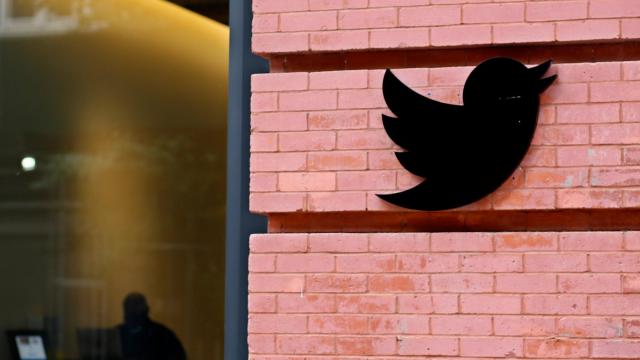Five former Twitter employees who were fired on Thursday have already filed a lawsuit against the social media company for failing to adhere to California’s WARN Act, a law that requires large employers to provide 60 days of notice to employees before mass layoffs. And the lawsuit even calls out another company run by Elon Musk for doing the exact same thing.
Twitter employees started receiving layoff notices late Thursday, and while it’s not clear exactly how many people will ultimately get the boot, roughly half of the company’s 7,500 employees are expected to lose their jobs. The layoffs are part of a plan instigated by Musk, according to several reports, though he didn’t even have the decency to sign his name to a notice that went out to all employees on Thursday.
“In an effort to place Twitter on a healthy path, we will go through the difficult process of reducing our global work force,” the unsigned email from a generic email address said, according to screenshots circulated on Twitter.
“We acknowledge this is an incredibly challenging experience to go through, whether or not you are impacted. We are grateful for your contributions to Twitter and for your patience as we move through this process,” the email continued.
The lawsuit, which is available in its entirety online thanks to reporter Chris Geidner, names five Twitter employees who either received a formal notice they’d been fired or were locked out of their work accounts on Thursday, presumably because they were about to be fired. The lawsuit even calls out another Musk company, electric car maker Tesla, for previously conducting mass layoffs without proper notice to employees.
“That company attempted to obtain releases from laid off employees without informing them of their rights under the federal or California WARN Acts. A federal court subsequently ordered the company to provide employees notice of the claims that had been filed on their behalf,” the lawsuit reads.
The lawyers behind the new suit are attempting to get it recognised by the court as a class action, and it’s hard to see why that wouldn’t happen. There are, after all, probably 3,700 people or so who are getting pink slips right now as Musk tries to drastically reduce costs and bring in new revenue from the social media site. Twitter’s San Francisco office will be closed on Friday as the layoffs continue.
Musk has only been at the helm for a week and the chaos he’s unleashed at Twitter includes too many dramatic tales to count — from losing fights with Rep. Alexandria Ocasio-Cortez to flip flopping on whether users who’ve been permanently banned will allowed back on the site. Musk initially said that he didn’t believe anyone should be permanently banned on the platform, but then said there would be a long review process before anyone would actually be allowed back on the site.
All eyes are on former President Donald Trump, of course, as he’s the most high-profile person to have been banned from Twitter following his attempted coup in 2021. But other neo-fascists, racists, and assorted arseholes are standing in line waiting to get back on Twitter, including conspiracy theorist Alex Jones, anti-Muslim bigot Laura Loomer, former Grand Wizard of the KKK David Duke, and former Trump advisor Roger Stone.
Musk, who purchased Twitter for $US44 ($61) billion with the help of many investors, wants to start charging $US8 ($11) per month for verification on the platform, something that could start as early as Monday. But it doesn’t appear there will actually be any kind of ID enforcement for the new Twitter verification process, according to the New York Times. That means anyone could start impersonating a famous person for $US8 ($11), a particularly bad idea the day before the midterm election which will be held on Tuesday.
Musk isn’t just brainstorming new features and cutting staff to squeeze more money out of the company. Twitter has initiated something called the “Deep Cuts Plan” which seeks to find $US1 ($1) billion in savings from switching cloud providers and servers, according to a new report from Reuters. But that same report notes there’s very real concern within Twitter that making such drastic changes to the site’s infrastructure could result in significant downtime during busy periods — something users who were around during the early years of Twitter became very familiar with, with a notification known as the Fail Whale.
Twitter has reportedly started haemorrhaging users, with over 875,000 people deactivating their account since Musk took over the website, according to MIT Technology Review. And many others have threatened to leave the site after the new verification process is implemented, something that would likely attract a large number of impersonation accounts without the right safeguards.
What’s next for Musk and Twitter? Your guess is as good as ours. Musk definitely seems to be making it up as he goes along rather than executing some grand well-thought out plan — as becomes apparent every time he floats an idea on the site becomes defensive when people criticise it. Musk was even haggling with horror author Stephen King over the proposed new payment scheme for Twitter verification.
King, who’s reportedly worth at least $US400 ($555) million, tweeted earlier this week that he wouldn’t pay $US20 to get verified, the rumoured rate at the time.
“We need to pay the bills somehow! Twitter cannot rely entirely on advertisers. How about $US8?” Musk replied.
And that exchange pretty much says it all. King wasn’t objecting the specific dollar amount. He was objecting to the idea of paying for verification in the first place, a silly idea, especially if you’re not actually verifying any user’s identity. But Musk doesn’t get that and he really doesn’t get Twitter and what makes people want to spend their time on the site.
